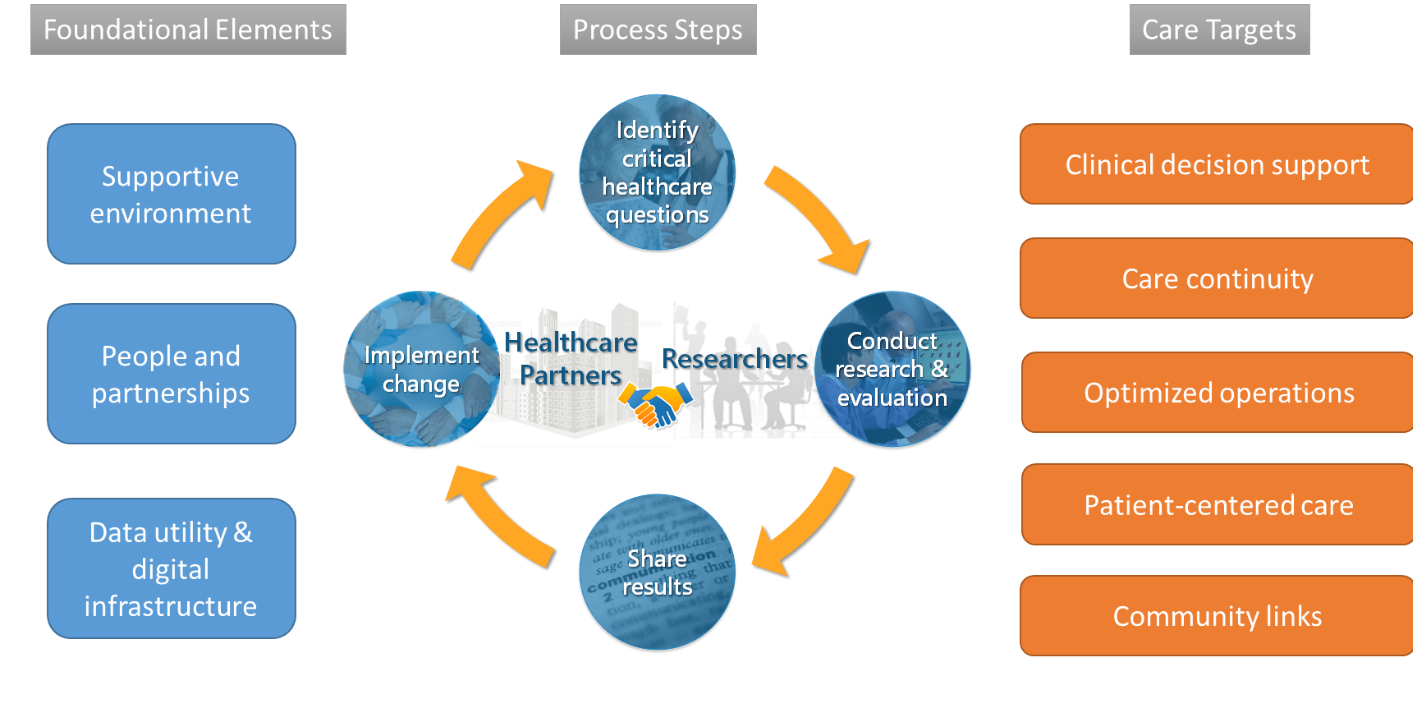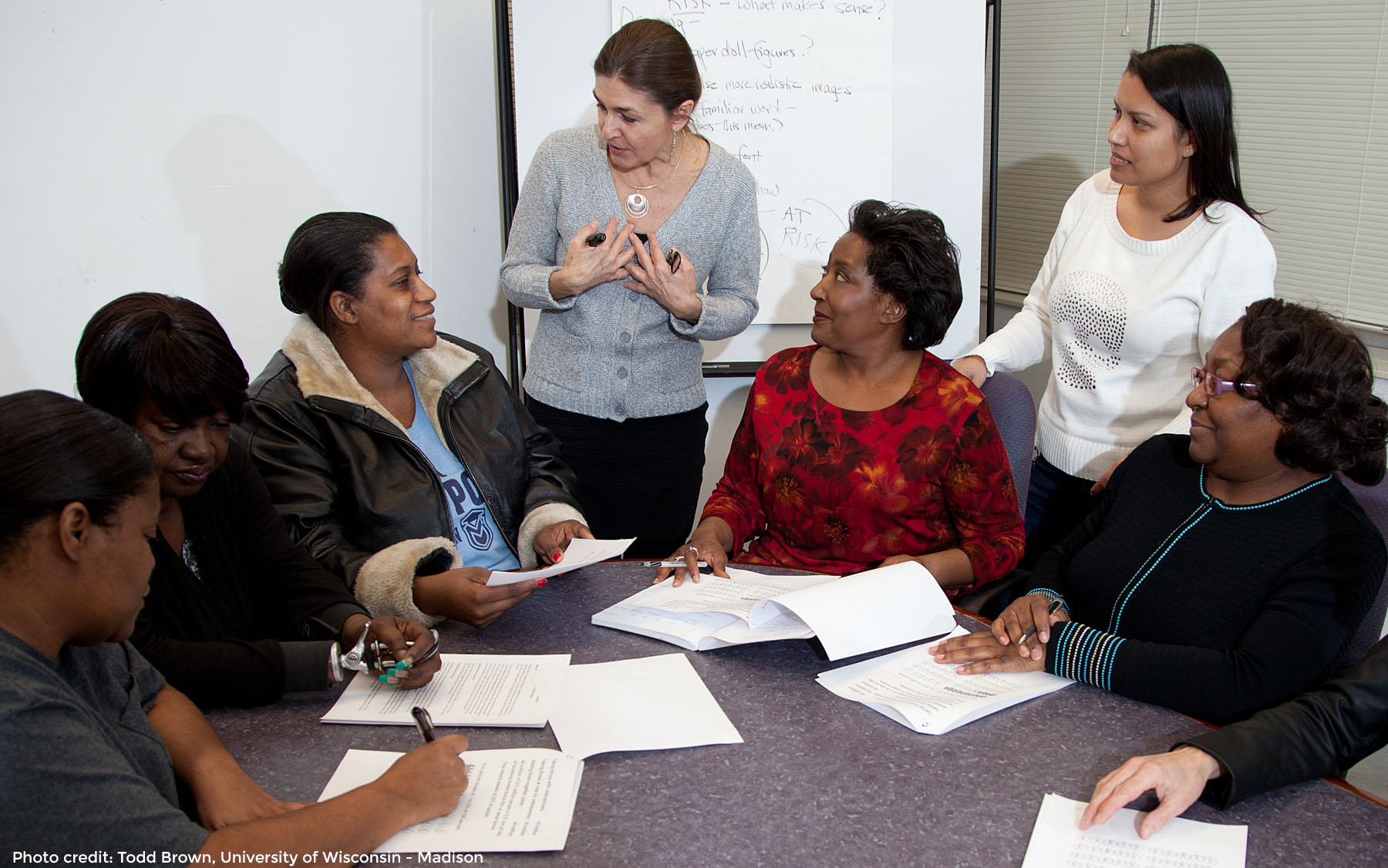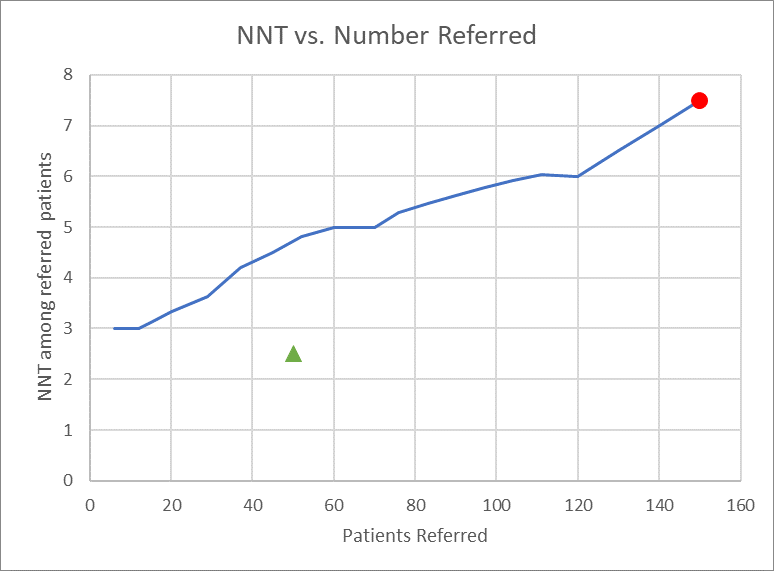- Datasets and Research Tools
- Engagement in Care
- Engagement in Research
- HIPxChange
- Health IT
- Learning Health System
- Quality and Safety
Background
There are major barriers to embedding researchers in health systems to support learning health system activities. To make progress, practical models and tools are required to operationalize existing frameworks for learning health systems. The HIP model defines specific steps for projects to create sustainable change based on research conducted within the health system.
The HIP Model for Research with Learning Health Systems
Overall, HIP identifies researchers interested in topics identified by the health system as priorities, and then facilitates communication with the health system to design and implement projects that are mutually beneficial. In this way, HIP builds a bridge between science and clinical care to ensure that high-priority questions are identified and pursued and that results are shared with the health system to support system-wide change. Additional detail on the elements of this model are available in the publication noted below.

Tools to Support the HIP Model
This web page collects a variety of tools that we and our collaborators have developed over the years to support research with learning health systems. These tools are organized according to the HIP Model. More tools are being added all the time…you can check the box above if you would like to be notified when new tools are posted on this page.
Foundational Elements – Data Utility and Digital Infrastructure
 |
 |
 |
| Health Innovation Program DRG Categories | Health Innovation Program (HIP) Claims Data Processing Standards | Identifying Patients with Multiple Chronic Conditions |
Process Step 1 – Identify a critical question
 |
|
| Sustaining Engagement of Blended Stakeholder Boards | Bringing Patients’ Voices to American Health Care |
Process step 2 – Conduct research and evaluation
 |
 |
 |
| Patient Advisor Toolkit 1: Orientation for Patient Advisory Committees (PAT-1) | Informed Consent Templates and Model Language | IRB QI Self-Certification Decision Tool |
Process 3 – Share results
 |
 |
 |
| Number Needed to Treat Thresholding Toolkit | Publishing Quality Improvement Work | Engaging Research Participants in Disseminating Health Experiences Research |
Process Step 4 – Implement change
Examples
 |
| Academic Learning Health System Toolkit |
Who should use this toolkit?
This page is intended for researchers as well as healthcare administrators and clinicians wishing to partner with researchers to support learning health system activities.
Development of this toolkit
The HIP Model and Tools for Research with Learning Health Systems exists for the benefit of the health care community. These materials are available free of charge and can be used without permission. It is acceptable to link to this Web site without express permission. If you decide to use these materials, we ask that you please credit the University of Wisconsin-Madison Health Innovation Program.
References
Smith M, Yu M, Nordby P, Jaffery J. A Practical Model for Research with Learning Health Systems: Building and Implementing Effective Complex Case Management. Appl Ergon. 2020;84:103023.
Toolkit Citation
We suggest using the following citation for this toolkit: HIP Model and Tools for Research with Learning Health Systems. Health Innovation Program. Madison, WI; 2019. Available at http://www.hipxchange.org/HIPModel.







